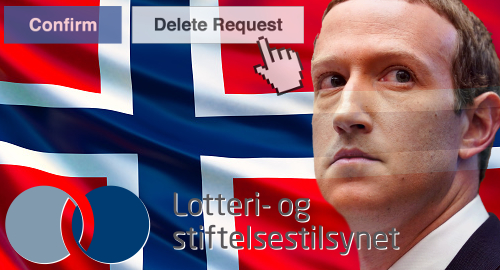 Norway’s gambling regulator has convinced Facebook to pull three dozen online gambling pages from the social media platform for promoting their wares to local punters without local permission.
Norway’s gambling regulator has convinced Facebook to pull three dozen online gambling pages from the social media platform for promoting their wares to local punters without local permission.
On Monday, the Lotteritilsynet regulatory agency announced that Facebook had yanked 36 online gambling sites’ pages after being notified by the regulator that the pages were in violation of Norway’s gambling laws.
Among the operators cited in the announcement were the Gamesys Group’s Vera&John online casino brand, Coolbet’s Kommunepoker and Vennepoker brands, Gaming Innovation Group’s Rizk brand (now part of the Betsson Group) and Cherry AB’s ComeOn brand (which earlier this year lost a Norwegian eSports sponsorship opportunity due to local protests).
The Norwegian-language pages encouraged customers to patronize the internationally licensed gambling sites that compete with Norway’s state-run operators Norsk Tipping and Norsk Rikstoto. In addition to cracking down on unauthorized marketing, Norway’s government has been targeting payment processing and imposing domain-blocking to ensure the financial health of its online monopoly.
Lotteritilsynet legal eagle Monica Alisøy Kjelsnes said the 36 pages not only violated Norway’s gambling laws but also “Facebook’s own guidelines.” This is hardly the first time that Norway’s regulator has convinced Zuckerberg to pull gambling operators’ Norwegian-facing pages, with examples on this site dating back to 2014, while also convincing YouTube to conduct its own Norwegian-language gambling purge.
Norway recently amended the country’s Broadcasting Act to limit the ability of international rogues to market their wares on Norwegian-facing television channels. Kjelsnes said the regulator fully expects foreign sites to revise their marketing strategies through other channels once these rules take effect on January 1, 2021, but promised the regulator would deal with this when it occurred.
Norway is one of the few remaining European holdouts still clinging to a state-run monopoly gambling model. The country’s problem gambling association Spillavhengighet Norge is currently conducting a study to determine whether an open licensing model might be better equipped to limit the ranks of the nation’s problem gamblers, which have been on the rise over the past five years.